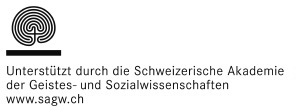The Effects of Teacher Communication During a Health Intervention on Older Adolescents’ Predictors of Health Behaviour
DOI:
https://doi.org/10.47368/ejhc.2022.307Keywords:
interpersonal communication, health behaviour, adolescents, school-based intervention, teacher communicationAbstract
This study investigated the influence of teacher communication behaviours on predictors of alcohol use, snack intake, and physical exercise during a school-based health intervention. Additionally, we investigated whether students’ evaluations of the intervention mediated these effects. In a two-way prospective study, 389 adolescents (222 females; Mage = 16.64, SDage = 1.97) completed a survey. Key variables were teacher communication behaviours (i.e., clarity, verbal immediacy, and content relevance), predictors (i.e., attitudes, social norms, perceived behavioural control, and intentions) of alcohol use, snack intake, and physical exercise, and students’ evaluations of the health intervention were investigated. Results showed that teacher clarity resulted in significantly healthier injunctive norms and higher perceived behavioural control regarding alcohol use, and for exercise in significantly healthier attitudes, descriptive norms, and intentions to exercise. No effects of teacher clarity were found for snack intake. Furthermore, teacher clarity, verbal immediacy, and content relevance did not indirectly result in healthier predictors of health behaviour through evaluations of the intervention. Findings support the role of teacher clarity for intervention effectiveness, and advise designers of health interventions to incorporate the role of teacher clarity in their teacher training programs to achieve more desired changes in health behaviour.
Downloads
Published
How to Cite
Issue
Section
License
Copyright (c) 2022 Mathijs Mesman, Hanneke Hendriks, Simone Onrust, Bas van den Putte

This work is licensed under a Creative Commons Attribution 4.0 International License.
The authors agree to the following license and copyright agreement:
a. Authors retain copyright in their work.
b. Authors grant the European Journal of Health Communication the right of first publication online on the internet (on the publication platform HOPE of the Main Library of the University of Zurich).
c. The electronic contributions on the internet are distributed under the „Creative Commons Attribution 4.0 International“- License (CC BY 4.0). This license allows others to copy and redistribute the work in any medium or format, to remix, transform and build upon the material with an acknowledgement of the work's authorship and initial publication in the European Journal of Health Communication . These conditions are irrevocable. The full text of the license may be read under http://creativecommons.org/licenses/by/4.0/.
d. Authors are able to enter into separate, additional contractual arrangements for the non-exclusive distribution of their work, as long as the conditions of the CC BY 4.0 License are fulfilled and initial publication in the European Journal of Health Communication is acknowledged.
e. Authors grant the Editors commercial rights, using a publishing house, to produce hardcopy volumes of the journal for sale to libraries and individuals, as well as to integrate the manuscript, its title, and its abstract in databases, abstracting and indexing services, and other similar information services.
f. This agreement is subject to possible legal disclosure obligations.
g. This agreement is governed by Swiss law. Court of jurisdiction is Zürich.









